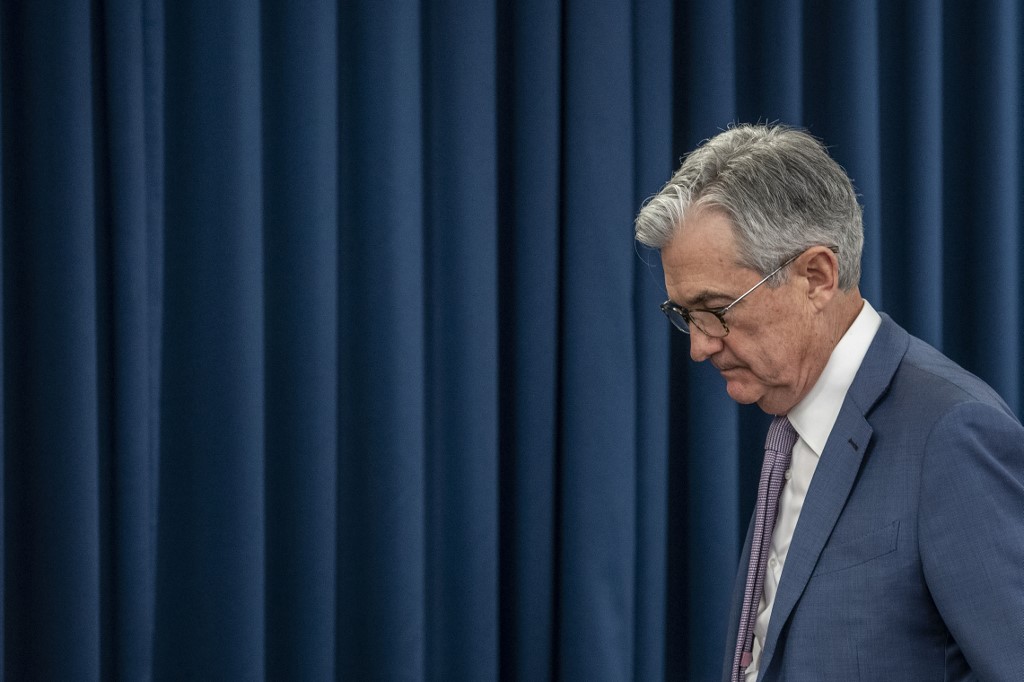Trade of the Day: Stocks sold off as US Senate grapples with aid plan passage but reversed losses after Fed’s quantitative easing (QE) programme.
Quote of the Day: “The world is heading towards an unprecedented time of a global halt. Lower rates and expansionary fiscal policies are helpful but the resumption of business activities can only be supported with lower coronavirus infections. Furthermore, international cooperation on the sanitary front and coordination of economic policies is a must,” said Alicia Garcia Herrero, Chief Economist Asia Pacific at Natixis.
Stock of the day: Evergrande Group’s shares fell as much as 17.5% after China’s biggest property company estimated its profit in 2019 declined by 48%. Its dollar bonds fell by 11-17%.
Number of the Day: 2 trillion yen; the size of the share repurchase plan by technology conglomerate Softbank, which sent up its stock price by 18.6%.
Tip of the Day: “We believe the current market volatility presents a good buying opportunity to education, property management and other omni-channel driven e-commerce names,” said Kai Kong Chay, Greater China Specialist at Manulife Investment Management. “The penetration increase of online education hit the highest by more than one year due to school closures. Leading providers are exhibiting clear competitive advantages by merging offline learning with online. This is due to scale, a timely ramp-up in online content and high execution capabilities. We believe these structural changes in consumer behaviour will not be reversed when the overall situation normalises. Property-management service is another area where structural growth should persist. The gross floor area for properties under management in the residential and commercial space is expected to increase by 10% and 16.0% respectively. This will translate into robust demand for quality property services, and we believe that top-tier property managers with good execution capabilities will gain market share in the medium term.”
Meanwhile, financial markets were clobbered during Asian trading hours after talks about a $2-trillion US stimulus package faltered, with Democrats saying the Republican-designed package favoured big businesses. But during European trading hours the US Federal Reserve announced new measures, implying unlimited quantitative easing, to support the flow of credit to households and businesses.
The measures come as the fast spreading coronavirus pandemic has claimed 15,308 lives and infected nearly 350,000 people globally. This is pushing the global economy to a widely expected recession.
The Australian S&P ASX 200 index dived 5.6%, Korea’s KOSPI dropped 5.3% and the Hang Seng index retreated 4.9% as consumer cyclicals, healthcare and property sectors were sold. In India, the S&P BSE Sensex fell 3,935 points, its biggest daily loss, to 25,981. The 13.2% fall triggered the country’s central bank to advance a 150-billion-rupee open market operation to March 26 from March 30.
Regionally, the MSCI Asia Pacific ex-Japan index tumbled 5.5% with only Japan’s Nikkei index in positive territory, while the Nikkei benchmark rose 2%, lifted by an 18.6% surge in technology conglomerate Softbank, which at 4.08% has the second highest weightage in the index.
Even as Europe weakened with the Stoxx Europe 600 down 4.5%, Wall Street is seen opening stronger after Fed’s surprise announcement. The S&P futures are up 1.5%.
Investors are optimistic because there were tools in reserve that central banks can employ.
‘A lot of tools that can be deployed’
“Since the last financial crisis the Fed has developed a lot of tools which can be deployed – the TARP (Troubled Asset Relief Program), the TALF (Term Asset-Backed Securities Loan Facility), or even take pages out of the ECB and BoJ’s books,” said Rajeev De Mello, head of the Development Committee at the Investment Management Association of Singapore and managing director at Deep Learning Investments, an investment strategy consultancy.
Earlier, risky assets sold off after Senate Democrats blocked movement on a massive stimulus package which Larry Kudlow, the director of President Donald Trump’s National Economic Council, said would end up around $2 trillion.
Democrats say that a $500-billion fund to bail out industries hard-hit by the economic disruption caused by the virus amounts to a “corporate slush fund” that the administration could use to reward its friends, according to the Los Angeles Times.
“The governments are using the GFC playbook for a health pandemic,” said a Hong Kong-based research head referring to the global financial crisis of 2007/2008. “The spending should be on infrastructure like hospitals and healthcare and to encourage job creation by small companies rather than to give the money to S&P 500 companies to spend on share buybacks.”
The decline in market-making activity was also blamed for the off-the-chart drop in some markets with investors unable to stomach the volatility.
“During the GFC the market-making ability was estimated at around a trillion dollars globally as against the $3 trillion real money portfolio,” a Singapore-based fund manager said.
“The two have gone in opposite directions since then with real money ballooning to over $10 trillion and the market-making ability declining to less than half a trillion. There is no ability to warehouse or absorb this kind of dislocation,” he added referring to the complete derailment of the price discovery process.
























